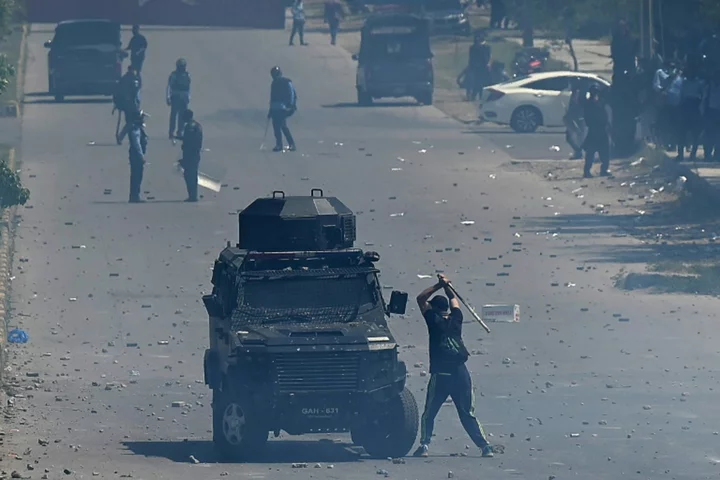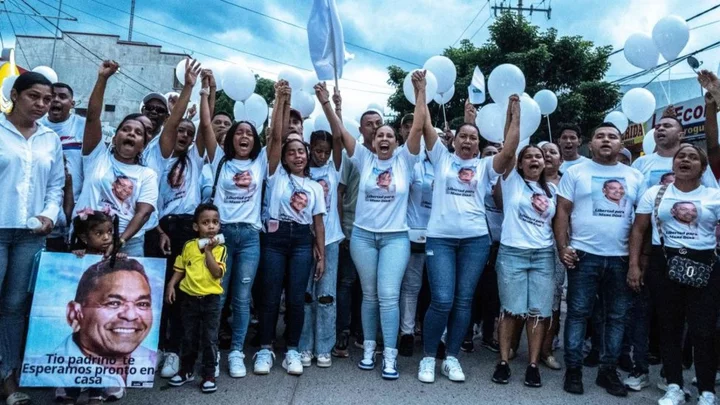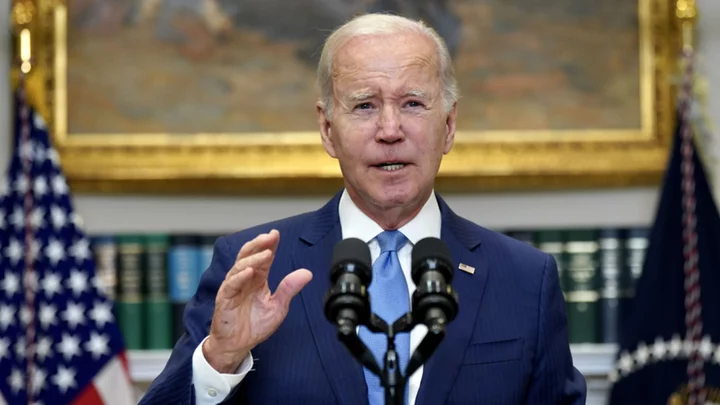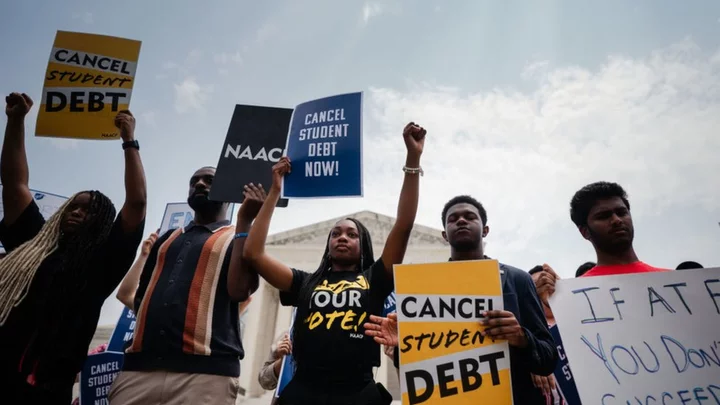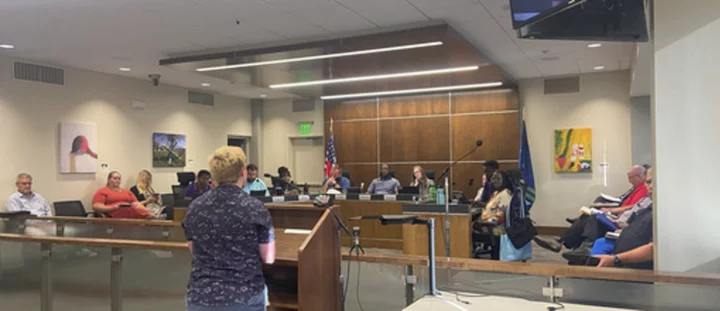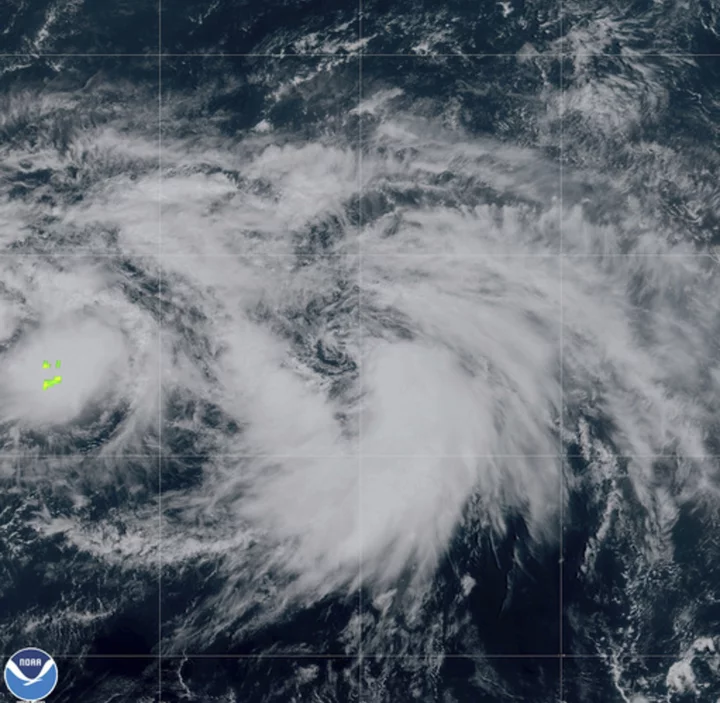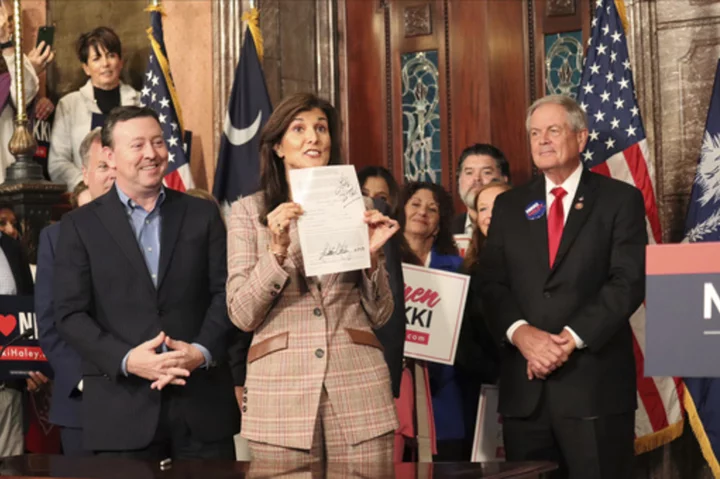Troops were deployed in Pakistan's capital on Thursday after the arrest of former prime minister Imran Khan triggered two days of violent protests by his supporters.
Khan was remanded in custody for eight days on corruption charges on Wednesday, following months of political crisis that saw the ousted leader wage a campaign of defiance against the powerful military.
Khan's arrest has enraged supporters of his Pakistan Tehreek-e-Insaf (PTI) party, who have clashed with security forces in several cities and marched up to the headquarters of the army.
Khan's supporters accuse the military of having orchestrated Khan's ouster in April last year. The military denies any involvement.
"If they think that the arrest of Imran Khan will demoralise us, then they are hugely mistaken," said protester Niaz Ali on Wednesday in Peshawar, where several monuments and government buildings were torched.
"We stand with Imran Khan and will support him till death."
At least seven officials from PTI's central leadership were arrested and detained, accused of orchestrating the protests, Islamabad police said early Thursday.
The government on Wednesday approved the deployment of the army in two provinces -- including Punjab, the most populous -- and in the capital to restore peace.
Islamabad police said troops had already entered the capital's sensitive "red zone" where government buildings are housed.
At least six people have died in protest-related incidents, police and hospitals reported.
Hundreds of police officers have been injured and more than 2,000 people have been arrested across the country, mostly in Punjab and Khyber Pakhtunkhwa provinces, police forces reported.
The interior ministry has ordered mobile internet services cut and restricted access to social media sites Twitter, Facebook and YouTube, Pakistan's communications agency said.
Authorities have also ordered schools closed nationwide –- with year-end exams cancelled.
Khan appeared in a specially convened graft court on Wednesday, which remanded him for eight days following a request by Pakistan's top anti-corruption agency, Ali Bukhari, one of his lawyers, told AFP.
- 'Extreme restraint' -
The events marked a dramatic escalation in a political crisis that has simmered for months, during which Khan has waged his unprecedented campaign against the military, relying on near-fanatical support.
Pakistani politicians have frequently been arrested and jailed since the country's founding in 1947.
But few have so directly challenged a military that has staged at least three coups and ruled for more than three decades.
Khan, a former cricket superstar, remains wildly popular, and has said the dozens of cases brought against him following his ouster are part of an effort by the struggling government and the army to prevent him from returning to power.
Criticism of the military establishment is rare in Pakistan, where army chiefs hold significant influence over domestic politics and foreign policy, and the scenes this week were once considered inconceivable.
Khan's arrest came hours after the military rebuked him for alleging that a senior officer was involved in a plot to assassinate him. The army denied the accusation.
The military on Wednesday issued a strongly worded statement saying it was exercising "extreme restraint".
"In its lust for power, this group has done what the country's eternal enemies could not do for 75 years," the statement said.
It warned of a "severe reaction" to any further attacks on state and military facilities, and that the responsibility for that will lie with "a group that wants to push Pakistan into civil war".
Khan's party dismissed the statement as "contrary to facts and the situation on the ground".
UN Secretary-General Antonio Guterres on Wednesday called on all parties in the crisis to refrain from violence.
Pakistan is deeply mired in an economic and political crisis, with Khan agitating for early elections while the government is weighed down by security and economic turbulence.
bur-ecl/qan

